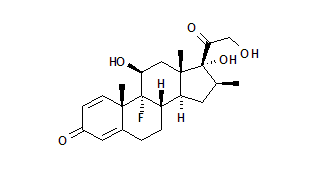Anyone who's ever had dandruff (a common flaking condition of the scalp) knows that it's not only embarrassing--it's also persistent. Cheryl Citron, M.D., a Livingston, N.J.-based dermatologist, shares details about what causes dandruff and offers simple solutions for how you can best control it.
THE BASIC FACTS
Dandruff is the most common condition affecting the scalp. Normally, skin on the scalp constantly renews itself by shedding dead cells every 28 days, allowing new, healthy cells to emerge. However, sometimes the process accelerates, causing more cells to shed faster as flakes. These flakes (dandruff) absorb the sebum (oil) produced in the hair follicle and bind together to create even larger flakes, which are easily visible.
WHAT TO LOOK FOR
Dandruff has several contributing factors:
* An oily, not dry, scalp fosters flakes.
* Yeastlike microorganisms (normal inhabitants of the scalp) are usually kept dormant by the skin's secretions of sweat and sebum, but an overabundance of these organisms causes an increase in the shedding of the scalp's dead cells.
* Stress can aggravate the condition by causing increased skin secretions, which impair resistance to the microorganisms that multiply and cause flakes.
* Cold weather; dandruff often worsens when temperatures drop and air is dry.
SIMPLE SOLUTIONS
You can control dandruff. Beauty Rx:
1. Use a medicated shampoo. These products contain ingredients like coal tar to slow the creation of new skin cells on the scalp and/or chloroxine to help kill microorganisms.
2. Use hair-care products sparingly. Gels, mousses and pomades can make the scalp more oily and contribute to flakes.
3. See a doctor for a topical steroid. Two steroid foams--Luxiq (betamethasone valerate) and the stronger Olux (clobetasol propionate)--can be used when dandruff is profuse and you haven't been able to reduce flakes with an over-the-counter dandruff shampoo.
RELATED ARTICLE
WHAT WORKS "Contrary to popular belief, dandruff is not from a dry scalp or from improper hair care," says Cheryl Citron, M.D., a Livingston, N.J. based dermatologist, who explains that an overabundance of the yeast-like organism Malassezia furfur (coupled with an oily scalp) aggravates the condition. "Make sure you're alternating a medicated dandruff shampoo with a regular shampoo, particularly when you're stressed," she says. "If the flakes don't respond to the shampoo, see your dermatologist. You may have a mild case of seborrheic dermatitis, a skin condition that causes thick, greasy, yellowish-colored flakes on the scalp, eyebrows and other areas of the face."
COPYRIGHT 2004 Weider Publications
COPYRIGHT 2004 Gale Group



